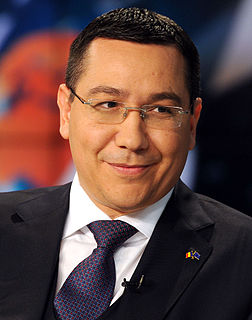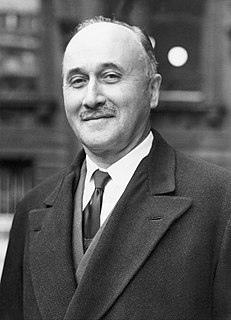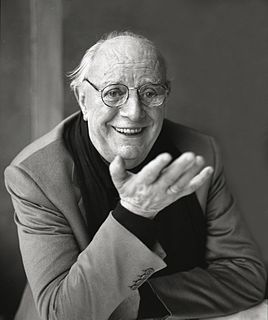A Quote by Victor Ponta
China needs a powerful Europe, but Europe can only be strong if each and every one of its members attains rapid economic development.
Related Quotes
There will be no peace in Europe if the States rebuild themselves on the basis of national sovereignty, with its implications of prestige politics and economic protection... The countries of Europe are not strong enough individually to be able to guarantee prosperity and social development for their peoples. The States of Europe must therefore form a federation or a European entity that would make them into a common economic unit.
Our international role depends on a strong Europe and a strong Europe depends on France's ability to share leadership with others, including Germany. If France is economically weak and doesn't carry out reforms, it is no longer credible. Europe's position on the global stage is thus weakened. I would like to change all that. France needs a strong Germany and a strong chancellor. But Germany also needs a strong France.
The Federated Republic of Europe-the United States of Europe-that is what must be. National autonomy no longer suffices. Economic evolution demands the abolition of national frontiers. If Europe is to remain split into national groups, then Imperialism will recommence its work. Only a Federated Republic of Europe can give peace to the world.
The Turkey deal can only be Plan B. Plan A needs to be a strong Europe that is prepared to defend its external borders on its own. If we do not do that, then we are living in a Europe that is dependent - on other countries, and possibly even on personalities like President Erdogan. And dependency is dangerous.
The truth is that we have long had a multi-track Europe with very different objectives. The traditional differences between the north and the south in fiscal and economic policy are far less problematic than those that exist between Eastern and Western Europe. In the south and east, China is steadily gaining more influence, such that a few EU member states no longer dare to make decisions that run counter to Chinese interests. You see it everywhere: China is the only country in the world that has a real geopolitical strategy.


































